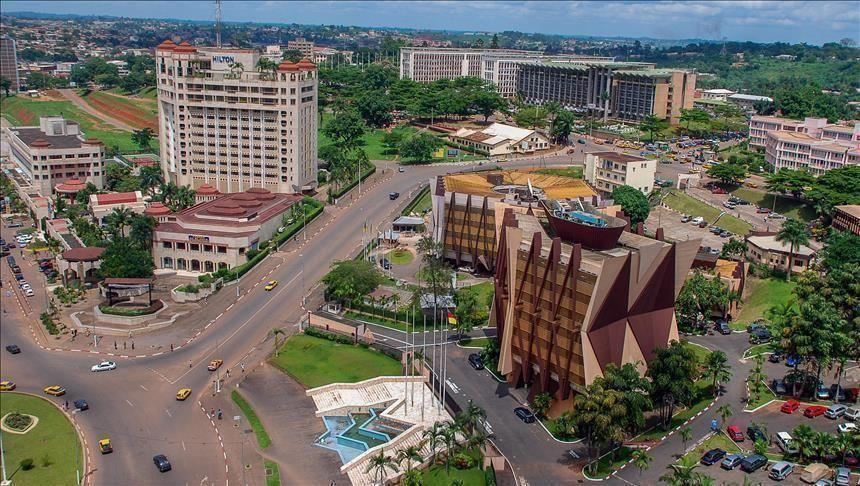Starting a business in Cameroon is a promising option for many diverse businesses. Cameroon is a French and English-speaking coastal state in West Africa with a young population of about 23.4 million and a high literacy rate of about 71.3% of the adult population. Cameroon’s stores benefit from its membership in the Economic and Monetary Community of West Africa, as well as from an Economic Partnership Agreement with the European Union, under which they avoid custom duties on many exported goods. The national currency of Cameroon is CAF or Central African Franc (XAF). Read on for details on starting a business in Cameroon.

As with starting a business anywhere in the world, you need to draw up a detailed business plan that includes details of your business concept, available resources, projections, strategies, research, and more.
Business in Cameroon adheres to the OHADA corporate law scheme, an abbreviation of the French name Organization for Harmonization in Africa, which translates into English as the Organization for the Harmonization of Corporate Law in Africa, and the corporate law scheme is applied in 17 African states (currently) and designed to counter economic underdevelopment in sub-Saharan Africa. OHADA aims to create a favorable investment climate in its member states and thus encourage domestic and foreign investment.
Once you have written a solid business plan, you will want to determine which business structure would be most appropriate for your enterprise. In Cameroon, you will most likely want to register as a sole proprietor, a private limited company (SARL), a public limited company (SA), or a foreign subsidiary (also known as Succursale). Affiliates and sole proprietors have unlimited liability, while it’s not the same for SARL and SA.
Private Limited Liability Company (SARL)
Requires at least one director and one shareholder
The minimum authorized capital of XAF is USD 1,000,000.
There is also an important difference between SARL, which is governed by a single director, and SARL, which is composed of several people, governed by a board of directors. However, both entities must open a bank account for their business and have at least 1 million XAF or about $ 1,760 in start-up capital.
Public limited company (SA)
Requires at least one director and one shareholder (can be an individual or legal entity). A minimum of XAF 10,000,000 in split share capital is required if the company wishes to be public after incorporation. Must appoint 2 auditors, 4 if listed on the Douala Stock Exchange.
Succursale
At least one Regional Director (can be of any nationality) is required to run a business in Cameroon. Every two years, it is necessary to request an update of the branch status from the Ministry of Trade and Commerce or register in Cameroon as a limited liability company. http://www.mincommerce.gov.cm/
You can also start an individual or small business if the company’s annual income is less than 49 million CFA francs, or about 86,000 US $. In this category, we find very small, small, and medium-sized companies, from one person to several people. While this is often the cheapest type of business to start, especially if it’s a small or one-man company, getting bank loans or external funding for your project can be difficult and you may not be able to apply for governmental projects.
Promising industries
With an annual economic growth rate of 4.8% in 2016 and a rich and diverse economy, business in Cameroon is thriving and will only get better in the future.
- Services: Transport and logistics, telecommunications, education, healthcare and more are all promising industries in Cameroon. In terms of developing domestic infrastructure and providing essential services, the service sector deserves attention for many reasons.
- Agriculture: Cocoa, bananas, coffee, cotton, and lumber are just a few of the more agricultural commodities that can be grown and harvested in Cameroon and sold overseas, and Cameroon benefits from one of the most diverse agricultural offerings in all of Africa.
- Handicrafts: Although handicrafts make up a significant part of Cameroon’s economic activity, especially domestically, the sector remains disorganized. Many artisans do not consider themselves such, and these businesses can exist for a long time in legal and economic gray zones. However, it is a sector with great potential and a country with a rich culture, filled with specific items and methods of making them. Don’t let the promising nature of the sector scare you.
- Import-Export: As mentioned earlier, Cameroon benefits from its Economic Partnership Agreement with the EU. The most popular products exported from Cameroon are coffee, cotton, cocoa, bananas, and bananas, as well as some palm oil derivatives. In terms of imports, it is still mainly focused on machinery and industrial technology, as well as electronics such as vehicles and telecommunications equipment. Whether you are importing or exporting, this is a worthy sector to look out for if you are considering starting a business in Cameroon.
- Innovation and new projects. The country has seen a meteoric rise in startup culture over the past few years, and this is a great place to consider starting a business in Cameroon. We can expect this trend to continue with grants and programs such as the Tony Elumelu Entrepreneurship Program focused on helping entrepreneurs introduce and fund their business initiatives. Popular destinations are related to communications, healthcare, agribusiness, and even fashion. The main difficulty in this sector is the lack of funding, which should be borne in mind when considering the resources at your disposal and the idea you want to bring to life.







